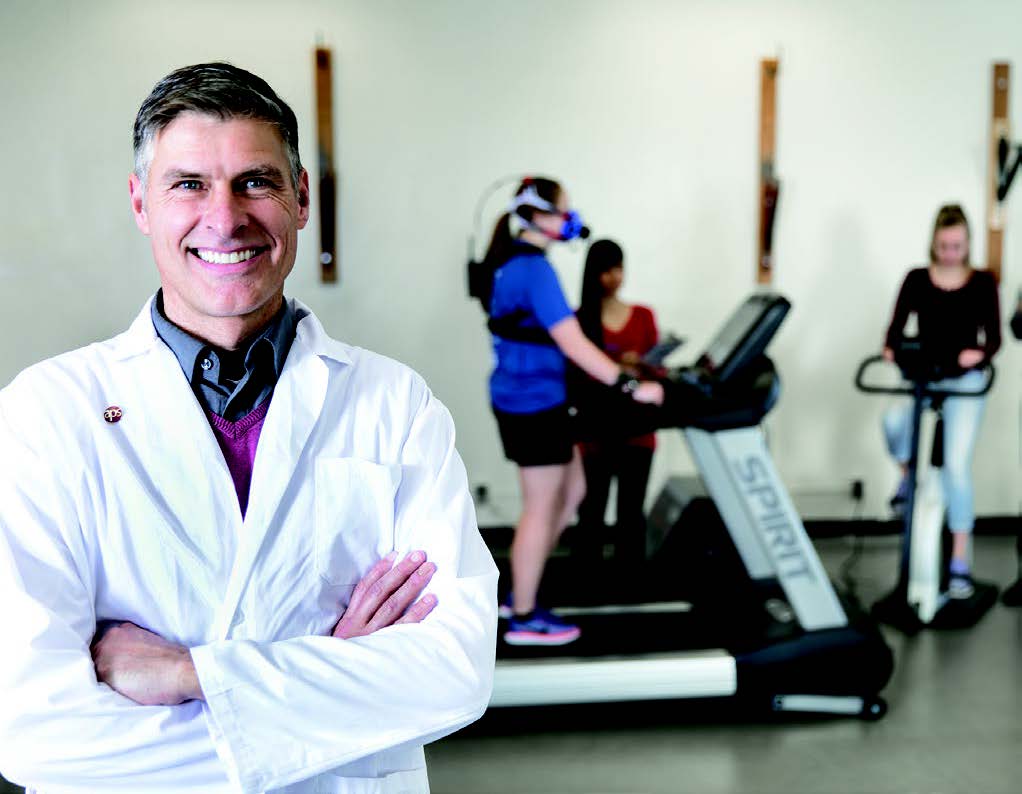
Michael Riddell
KINESIOLOGY & HEALTH SCIENCE
THE IMPORTANCE OF INSULIN’S DISCOVERY 100 years ago cannot be overstated: the drug has given life to millions of people who otherwise would have died not long after a diagnosis of Type 1 diabetes.
Although it’s a lifesaving medication, insulin carries side effects. One of these is hypoglycemia – a dangerous condition in which a patient’s blood sugar plummets, potentially resulting in life-threatening accidents, seizures or unconsciousness.
It’s a condition that can be brought on by many things: exercise or missed meals are most common, but also stress and natural changes in the body. In fact, diabetes researcher Michael Riddell says there may be up to 50 factors that influence blood sugar levels and some of these factors appear to contribute to hypoglycemia. Although glucose monitors can identify the condition, they cannot change it. “We now see that on average people whose diabetes was thought to be well controlled are actually spending 10 to 15 percent of their time in hypoglycemia,” says Riddell.
A leading expert on the relationships between diabetes, stress and exercise, Riddell is a professor in York’s School of
Kinesiology & Health Science and a member of York’s Muscle Health Research Centre. He is also a founding scientist with Zucara Therapeutics Inc. and is working closely with them to develop a drug that will prevent hypoglycemia in those with diabetes. Riddell received nearly $415,000 in funding for the project from the National Research Council of Canada Industrial Research Assistance Program and other funding sources. In addition, Zucara and York University have been awarded a Mitacs Accelerate Postdoctoral Fellowship grant, which will fund the development of a preclinical Type 2 diabetes model. Phase 1 trials of the drug, currently known as ZT-01, were completed in the summer of 2021, and it has moved on to the next stage in its development.
Diagnosed with Type 1 diabetes himself at the age of 14, Riddell has led a life in which sports and exercise have always been important. For those with diabetes, as for all of us, exercise has enormous benefits – but as Riddell says, those benefits should not come at a cost. “It’s our hope that patients will soon be able to live active lives, without constantly running into this brick wall of hypoglycemia.”
